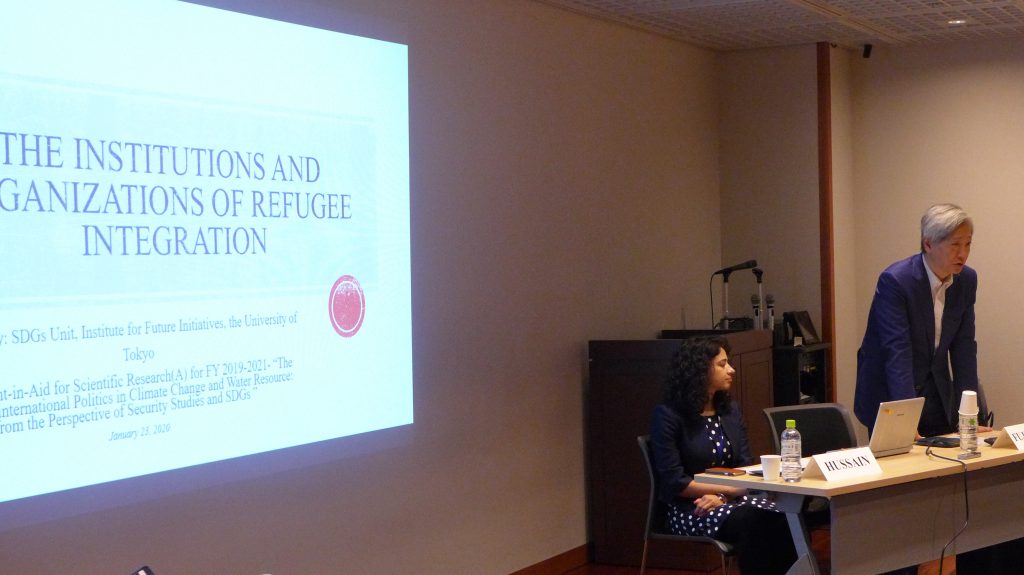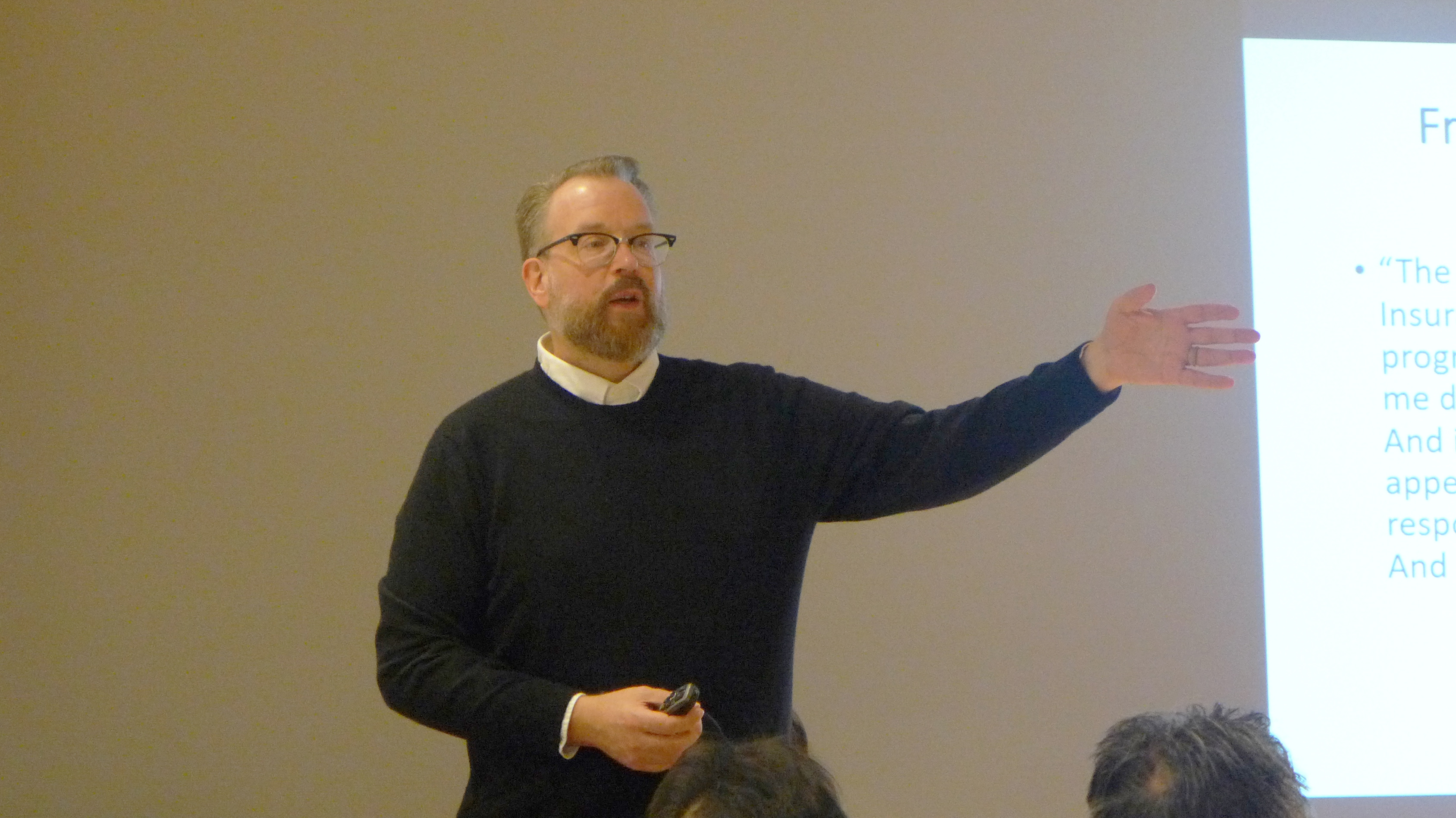SDGs Seminar — “The Institutions and Organizations of Refugee Integration: Voices of Bosnian-Herzegovinian and Syrian Refugees, and Lessons from their First Years in Sweden”
- Date:Thu, Jan 23, 2020
- Time:15:30 - 17:00
- Location:Gallery 1, Ito International Research Center B1F, Hongo Campus, the University of Tokyo
https://www.u-tokyo.ac.jp/adm/iirc/en/access.html - Subject:
The Institutions and Organizations of Refugee Integration: Voices of Bosnian-Herzegovinian and Syrian Refugees, and Lessons from their First Years in Sweden
- Language:
English
- Host:
Sustainable Development Goals Unit, the Institute for Future Initiatives, the University of Tokyo
The Sustainable Development Goals (SDGs) Unit of the Institute for Future Initiatives (IFI) was delighted to host a talk with Prof. Gregg Bucken-Knapp (School of Public Administration, University of Gothenburg, Sweden) and Prof. Aiko Nishikida (Faculty of Law, Department of Political Science, Keio University).
Dr. Nazia Hussain, Project Assistant Professor of IFI and Prof. Kiichi Fujiwara, Director of IFI chaired the event.

Prof. Fujiwara opened the session by welcoming the guests and introducing the multi-disciplinary research at IFI. He emphasized the urgent need to focus on issues related to the Sustainable Development Agenda as set by the United Nations, especially regarding peace and security.
Dr. Hussain briefly explained the relevance of discussing refugee-related research within the broader research agenda of the SDGs unit. At a time of unprecedented displacement of people in the world (70.8 million in 2018), she highlighted the importance of paying attention to the nature of political and social instability resulting from the coming together of multiple and simultaneous stresses (increasing urbanization; climate change contributing to social and political stresses; increasing number of refugees and migrants; and, resource scarcity) in regions of concern. Ordinary people lie at the heart of these emergent and present crises, which will not remain localized.

Listening to the “lived realities” of ordinary people in the center of action through a discussion of refugee experiences was thus a timely endeavor.
Using the voices of refugees as method, Prof. Bucken-Knapp presented analysis brought about by comparing experiences of refugees from Bosnia and Herzegovina (1992-1995) and Syria (2014-2018) who have settled in Sweden. Resulting from participating in initiatives in formal programs and less formal aspects of life in Sweden, these experiences highlight the narrative of integration as perceived by refugees.
With over 70 percent of them of working age, the Bosnian refugees that arrived in Sweden in the early 1990s mostly comprised of families. A housing surplus in Sweden, despite the ongoing economic recession, was helpful in terms of providing housing to refugees. Over time, they became integrated within the labor market; by 2013, Bosnian refugees shared similar employment rates as that of the Swedish population.
In 2012 when the rate of acceptance was high, Syrian refugees began arriving in Sweden, making the country the second-most popular destination after Germany in Europe. By 2016, however, the Swedish Social Democratic government with the support of the Green Party introduced strict policies (e.g., temporary residence permits, ID checks at borders etc.) that resulted in a decline in the number of asylum applications in 2016 and 2017.
The integration framework for Syrian refugees differed considerably, with a two year tailored plan entailing language training, Swedish society courses, and labor market integration initiatives. Unlike the experiences of Bosnian refugees, Syrians faced housing shortages, substandard housing and concentration in particular suburbs.

Nevertheless, despite being a divergent group of people who arrived decades apart, the experiences of Syrians and Bosnians shared some common insights. These included the following: that, the responsible institutions and organizations were not responsive to refugee needs; feelings of inferiority could heighten during the process of integration; refugees exhibited persistent agency (or “sticktoitiveness”) even as they faced obstacles posed by actors or institutions; and that, finding a job was important in setting up a new and relatively “normal” life in the host country.
Finally, Prof. Bucken-Knapp encouraged patience on the part of all stakeholders including refugees, host society, and government and non-governmental agencies, in order to increase understanding amongst everyone. He suggested making use of the academic-practitioner model as well as bringing together refugees and civil servants to engage and talk directly for co-producing policies that are attentive to the concerns of both parties.
Serving as the discussant, Prof. Nishikida shared that during her research, she found the perception among refugees and would-be migrants in the Middle East that Sweden promulgated a benevolent immigration policy. She suggested that the theme of “sticktoitiveness” reminded her of the concept of “sumud” or steadfastness in the Arabic language.